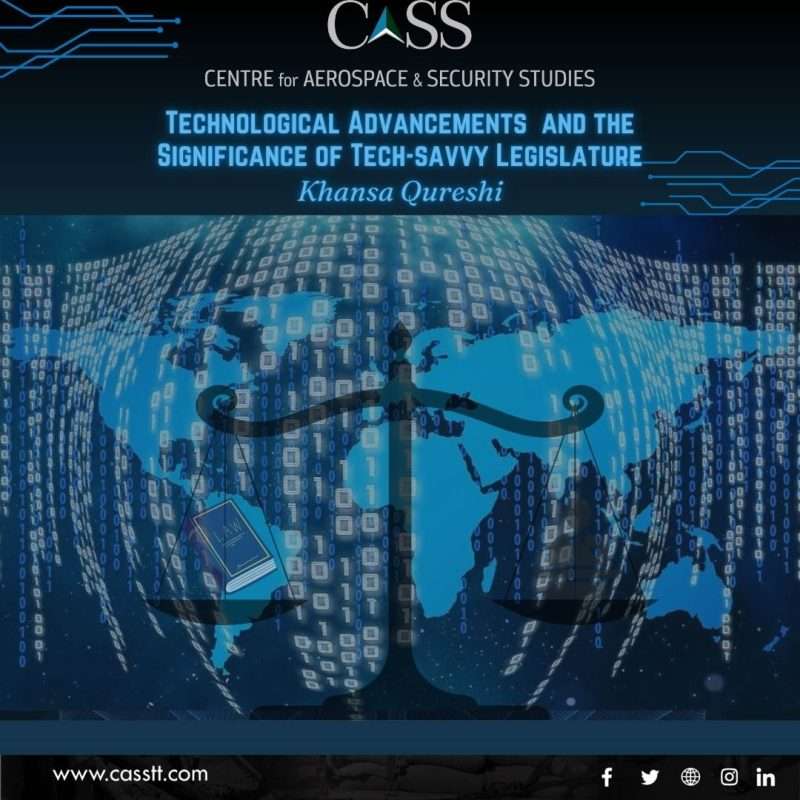One of the most famous examples illustrating the lawmakers struggling to understand technology dates back to 2006 when during a US Congressional hearing, Senator Ted Stevens called the internet a ‘series of tubes’. Today, some 17 years later, one would think things on this front would have improved. However, as technological advances mount, so do lawmakers’ struggle to keep up with understanding these concepts. To rein in ever-advancing tech, the US Congress has been periodically holding hearings on topics concerning the emerging technologies such as AI’s implications on the workforce and national security, cybersecurity threats, cryptocurrency, deployment of 5G, quantum computing, data privacy, and content moderation etc. However, one of the recurring aspects that these hearings have brought to the fore is how Congress continues to have difficulty in understanding technological concepts.
Technologies today are immersed in all walks of life from purposes as basic as engaging in online conversations to as sophisticated as exploring outer space to find traces of extra-terrestrial life. Technologies such as blockchain, AI, Machine Learning, Internet of Things, cloud computing, and their applications are causing disruptive changes in economic and political systems, military and defence structures, social norms, values and identities, as well as legal and regulatory frameworks.
Public representatives, given the power reposed in them by the public, are one of the key stakeholders in ensuring these technologies’ optimal use and minimising inherent risks. Therefore, it is pertinent for legislators to have a sound and solid understanding – in their discourse and in work – of the basics of emerging technologies. They must understand their wide-ranging and dual-natured applications; their implications for society; significance for national prosperity and security; consequences if these technologies are neglected and how a certain legislation would fare when it comes to their optimal use.
Similarly, while its important for lawmakers in developed nations like the US to master the basics of these technologies given the standards/regulations they often set for the rest of the world, it is equally important for lawmakers in developing countries to get the hang of technological advances, particularly given how they can also drive economic growth or lead to social polarisation if misused. Besides, legislators with better understanding of technological impacts can readily engage in informed legislation processes to create a conducive and business-friendly environment to attract investment, support entrepreneurship, foster innovation, protect public interest, as well as address potential challenges. This approach can lead towards the establishment of a technologically robust society with new jobs and industries, increased productivity, leading to wealth creation and improvements in the quality of life, ultimately enhancing national competitiveness.
However, just as a gap exists in developed and developing nations vis-à-vis their respective technological advancements, there also exists a gap in the level of understanding of these technological concepts by the lawmakers of developed and developing nations owing to the differences in society’s overall tech literacy, availability and exposure to the latest technological systems, and differences in education standards.
For example, in Pakistan’s case, the minimum qualification required to contest National Assembly elections is a graduate degree, with many members possessing just that. Besides, the average age of the parliamentarians is 52 years, with only 9 members younger than 30 years of age out of total 342.
In this backdrop, if parliamentary hearings on technological matters were to take place in Pakistan, it is difficult to imagine such an event being any better than when US Representative Adam Kinzinger during a Congressional hearing on the topic of quantum computing in 2018, jokingly admitted, ‘I can understand about 50 percent of the things you say.’ Lawmakers responsible for overseeing such matters in the country mostly have limited relevant expertise and experience – with the appointments to ministries as crucial as Science and Technology, Information and Communications, based on politics of power.
Nonetheless, the significance of a well-informed legislature, able to contemplate, deliberate, and debate complex science and technology topics cannot be overstated. Pakistan has the Pakistan Institute of Parliamentary Services (PIPS) devoted to help lawmakers get the necessary information required to make the right decisions. One of the key services provided by PIPS is ‘to enhance the performance productivity of the parliamentary committees by responding to their research requests; undertaking comparative studies, providing non-partisan, expert advice to promote effective decision making’. With a focus on technology related subjects, PIPS could provide the right policy guidance and help lawmakers move the country towards an effective posture on harnessing latest technologies.
In our pursuit of advanced technologies for national security and economic growth, the urgent need is clear: robust legislation to guide their use. The responsibility now falls on lawmakers to equip themselves adequately in order to wisely navigate these transformative times.
Khansa Qureshi is a Research Assistant at the Centre for Aerospace & Security Studies (CASS), Islamabad, Pakistan. She can be reached at [email protected]
Design Credit: Mysha Dua Salman





